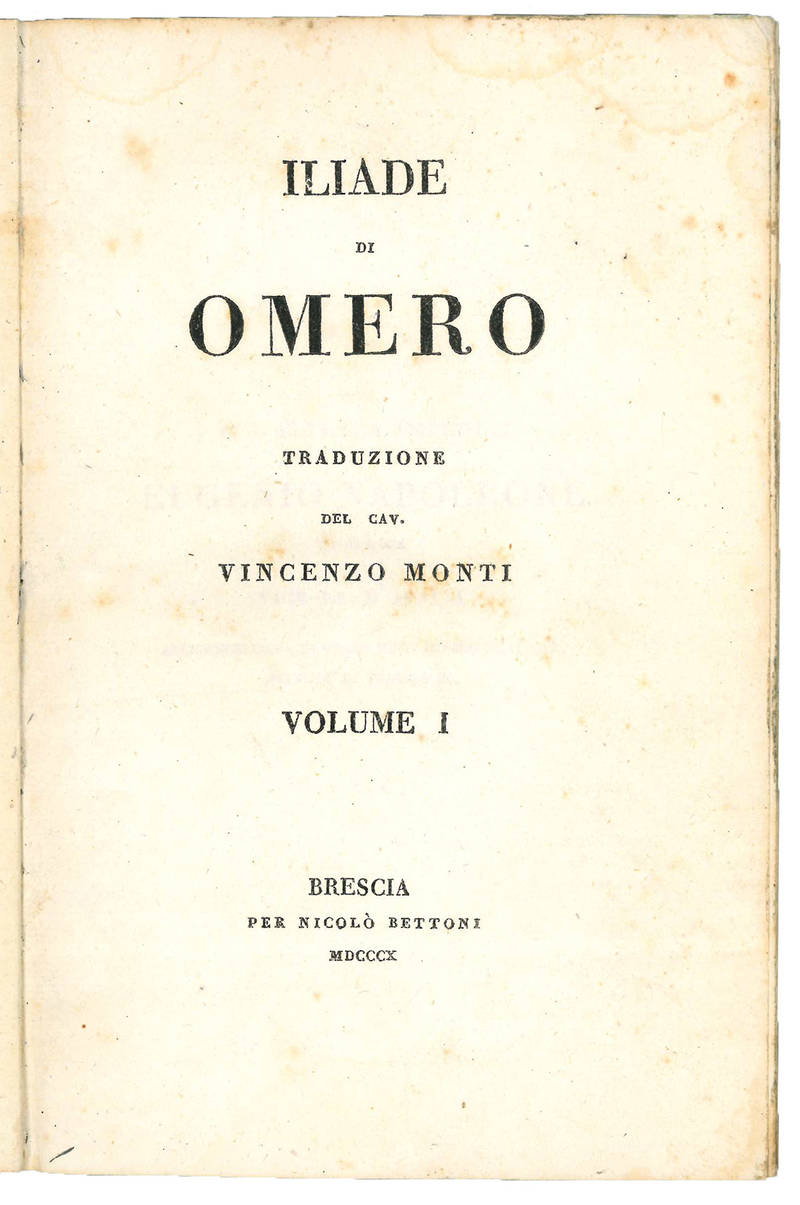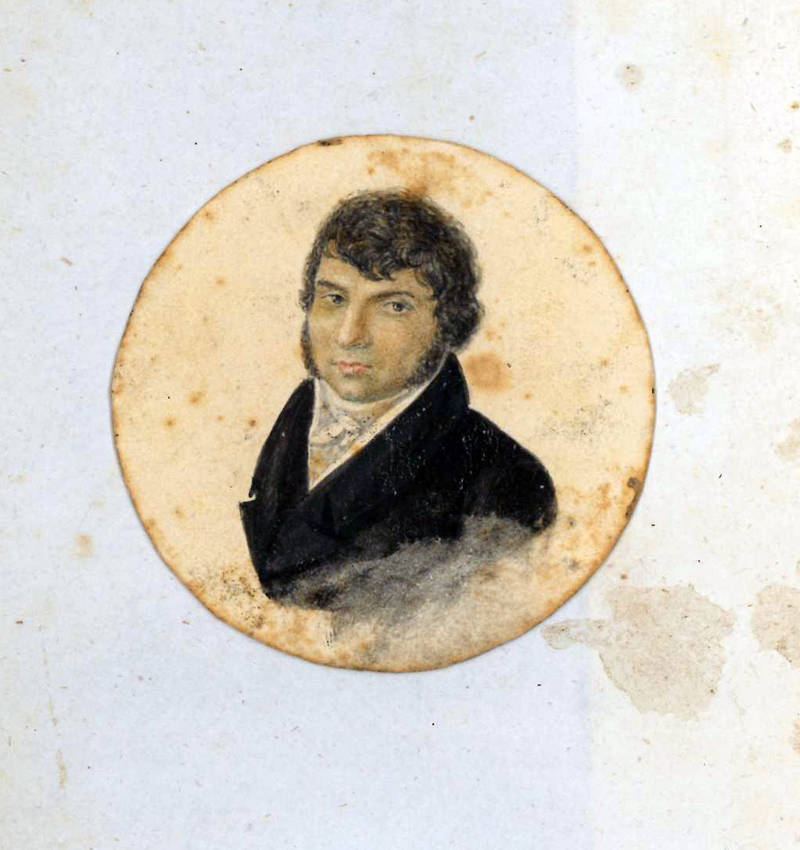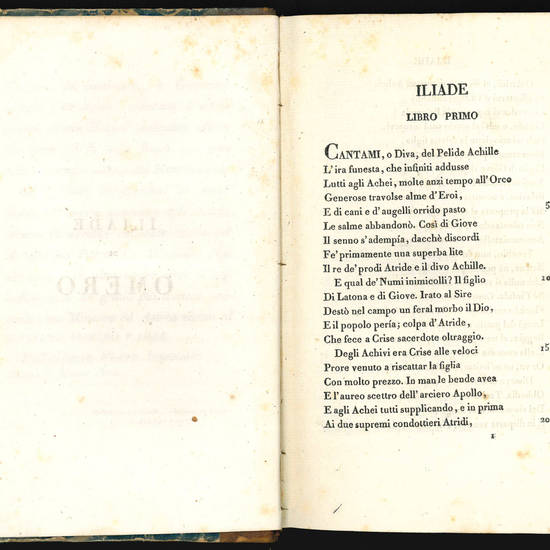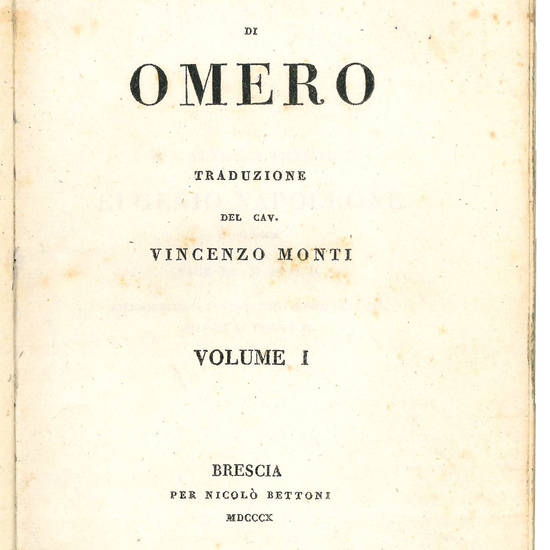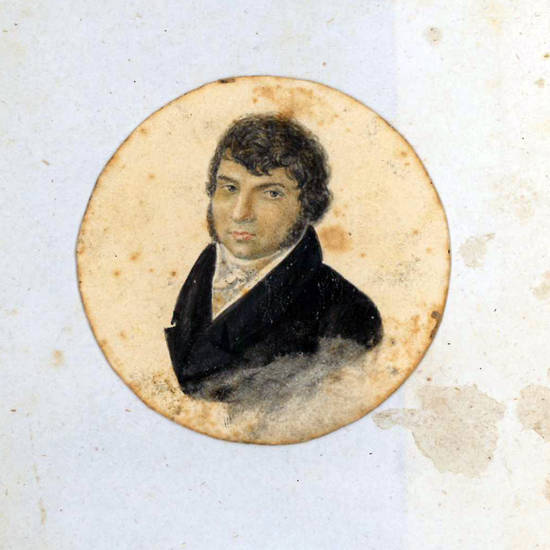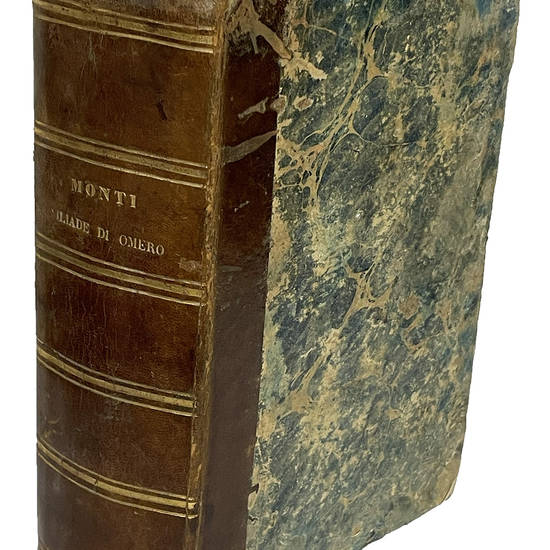Three parts in one volume, 8vo (199x130 mm). [8], 274, [4]; 299, [3]; 270 pp. Contemporary half calf gilt (slightly worn and rubbed). Small round colored portrait (of the author?) pasted on the front pastedown. Some foxing, but a good copy.
First edition, dedicated to the viceroy of Italy, Eugene Beauharnais, of Vincenzo Monti's famous translation of the Iliad, which in terms of its circulation represents one of the major Italian publishing successes of the last two centuries. Generations of students were teached on it until the mid-20th century, so much so that the Homeric text remained inseparable from Monti's verse version for a long time. The secret of this masterpiece lies perhaps paradoxically in the fact that Monti, ignorant of Greek, did not worry so much about the adherence to the original text and gave free rein to his fortunate amplifications and additions (cf. A.M. Balbi, La traduzione montiana dell'Iliade, Rome, 1962, passim).
About thirty copies of this first edition were printed on strong folio paper with larger font size. Dissatisfied, however, with the quality of the printing, Monti immediately set to work preparing a new edition, revised and corrected, which was published in 1812 at the Stamperia Reale in Milan.
Vincenzo Monti, a native of Alfonsine, received his early education at the seminary in Faenza, then studied law and medicine at the University of Ferrara. Inspired by the plays of Vittorio Alfieri, he debuted in 1785 with the tragedy Aristodemo. Initially an opponent of revolutionary ideas, Monti later became a supporter and collaborator of Napoleon. Appointed professor of rhetoric at the universities of Milan and then Pavia, in 1805 he became the official historian and poet of the newly formed Kingdom of Italy. After Napoleon's defeat, Monti had no qualms about siding with the Austrian Emperor Francis I and was rewarded by retaining his role as court poet. He died in Milan on October 13, 1828.
Italian Union Catalogue, IT\ICCU\TO0E\005931; Biancardi, 317; Parenti, 355.
[11002]

